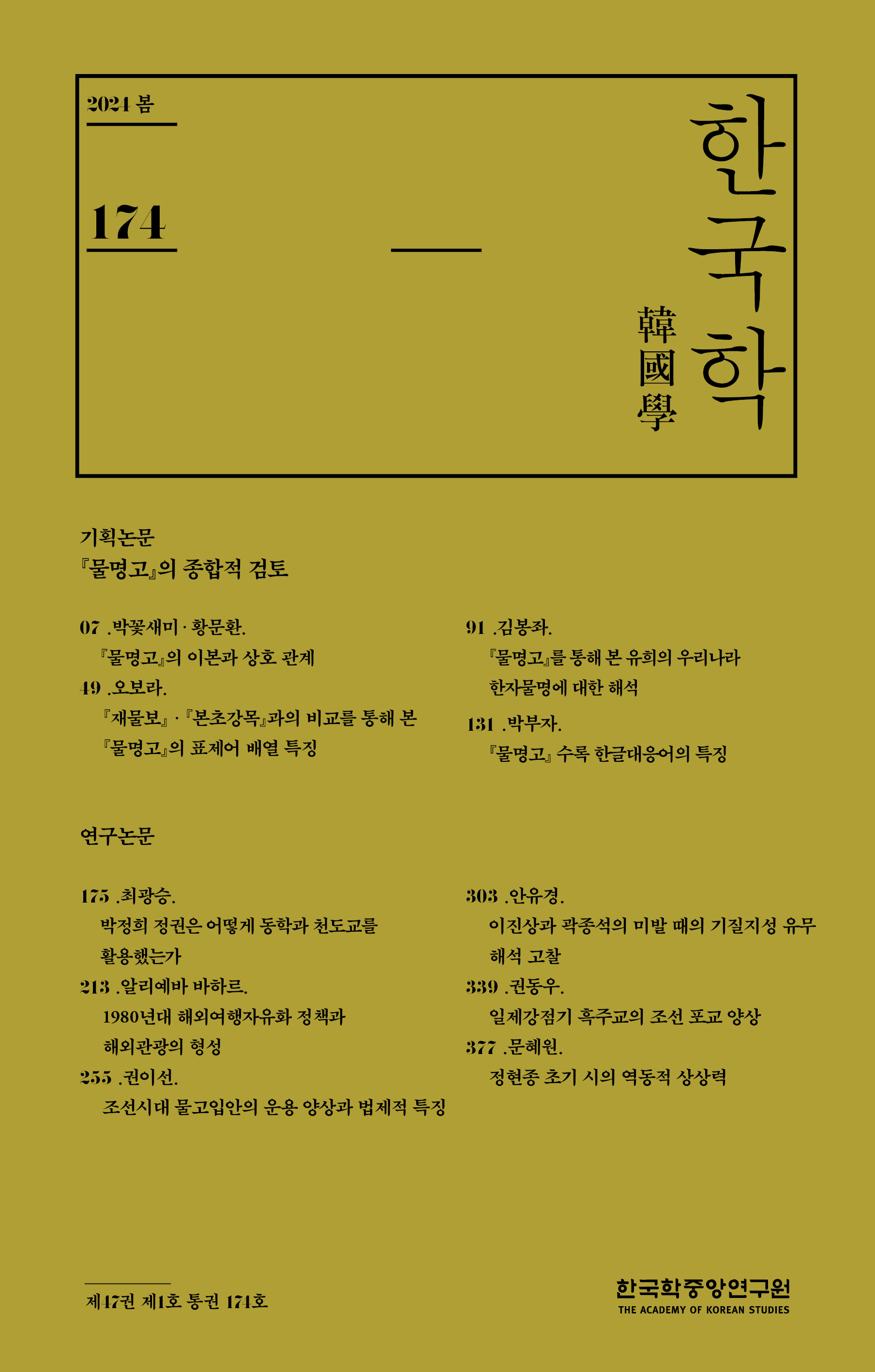
- P-ISSN 2671-8197
- E-ISSN 2733-936X
본 연구에서는 전북 조상굿의 사설을 분석하여 조상굿이 어떠한 내용으로 구성되는지 고찰하고, 전북 이외 지역과의 비교로써 전북 조상굿의 보편성과 특징 등을 밝히고자 했다. 다른 지역 조상굿의 내용 구성은 간단한 경우가 많은데, 전북 조상굿은 내용 구성이 짜임새가 있고 다양하다. 전반부에서는 인생무상에 대해 노래한 후, 사람의 죽음・장례 과정・저승 가는 길・저승에서 재판받는 장면 등으로 조상의 내력을 푼다. 인간이 죽어 모셔진 신이라는 조상신의 특성으로 인해 후반부에서는 조상을 염불로 천도(薦度)하며, 조상굿의 마지막에서도 조상신을 천도하면서 굿을 마친다. 전북 조상굿은 저승사자에 의해 죽음을 맞이하는 장면, 저승 가는 여정, 저승에 당도했을 때 마주한 풍경, 저승 재판 등을 묘사한 점이 흥미롭다. 그리고 조상굿을 통해 유교와 민간신앙에 의한 한국 전통 장례문화를 이해하는 데 도움이 된다. 후반부에 조상신을 염불로 천도하는 내용에서는 불교 영향을 많이 받았으며, 조상굿에서는 조상신 해원(解冤)을 위해 구송하는 납음오행 등도 담겨 있다. 따라서 전북 조상굿에서는 유교・민간신앙・불교・기타 철학사상이 잘 결합한 것을 볼 수 있고, 이와 더불어 한국의 삶과 전통문화가 투영되어 있음을 알 수 있다. 본 연구는 이제까지 일반무가 사설을 중점적으로 분석한 논의가 부족했다는 점에서 무가 연구 발전에 보탬이 될 것이다. 또한, 전북 조상굿의 사설 연구는 그동안 현지조사를 토대로 집적된 무가 자료집을 활용한 점과 타 지역에 비해 일찍이 쇠퇴한 전북 세습무 무가를 연구한 점에서 의미가 있다.
This study examines the content of an Josang Gut by analyzing the Saseols of the Jeonbuk Josang Gut, as well as the universality and characteristics of the Jeonbuk Josang Gut, by comparing it with its counterparts in other regions. The content of many ancestor Guts of other regions show a simple composition, whereas the Jeonbuk Josang Gut has structure and diversity in the composition of its content. Its first part sings about the transience of life and unfolds the history of ancestors in scenes about the death of people, the funeral process, the route to the next world, and trials in the next world. Given the characteristics of ancestral gods based on the worship of people who have died, the second part guides deceased ancestors to Heaven through Buddhist prayers. An Josang Gut ends with guidance of ancestors to Heaven. The Jeonbuk Josang Gut has interesting parts depicting a scene where a character faces his death by the hand of the angel of death, his journey to the next world, the scenery he faces when arriving in the next world, and his trials in the next world. Ancestor Guts are helpful for understanding Korea’s traditional funeral culture based on Confucianism and popular beliefs. The scene where ancestral gods are guided to Heaven through Buddhist prayers in the second part of the Jeonbuk Josang Gut is largely influenced by Buddhism. Ancestor Guts also contain Napeumohaeng to recite the Haewon of ancestral gods. The Jeonbuk Josang Gut offers a representative combination of Confucianism, popular beliefs, Buddhism, and other philosophical ideas and embodies the life and traditional culture of Korea. The present study contributes to the development of a body of literature on shaman songs since few studies have attempted to analyze the Saseols of Ibanmuga. This study of Jeonbuk shaman songs uses the collection of shaman song material accumulated during field studies and investigates shaman songs transmitted in Jeonbuk that saw an earlier decline than in other regions, thus holding significance.